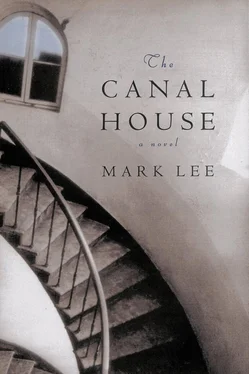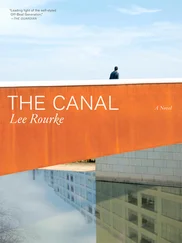Daniel ate his food quickly, then lit one of his Turkish cigarettes and paced around the enclosure. By now I knew that he didn’t smoke very often, only when he was tense or trying to figure something out. I caught up with him and we walked together.
“So what do you think?”
“It’s difficult.”
“Is Okello going to meet with us?”
“You can’t predict much of anything, Nicky. You know that.”
“Humor me, will you? Say something positive.”
“They’re feeding us. If they had decided to kill us in the next few hours, they wouldn’t give us food.”
“Is that the best you can do?”
“There are no miracles. I only believe in the reality in front of me.”
I went back to the shelter and finished my porridge. All the hostages had a different technique. Nora Barrow ate her ration very slowly, letting the food dissolve on her tongue. Ray Stokes divided his porridge into sections and ate bits of it over a three-hour period.
I knew that Daniel was trying to be honest with me, but I would have appreciated something a bit more optimistic. That afternoon, I decided that everything was dependent on the size of the photograph. You could take a picture of a little boy playing with a ball, then expand the frame to his angry parents who are trying to turn him into an angry adult, then expand the frame even larger to include the nice teacher who’s going to say something inspiring or the little girl who is going to grow up and fall in love with him. And you could keep doing that with your photograph, making it larger to bring in the good things or larger still to include all the misery and pain. Daniel was right, of course—there were no miracles—but I wanted a bigger lens.
THE RED SUN burned its way into the grass and stars began to come out. As it got dark, you could only see the silhouettes of the hostages, but they kept talking about that day’s ration and Okello’s plans.
“Are you all right, Mr. Bettencourt?” Joan asked quietly.
“Call me Nicky. Okay?”
“What’s the name of the little boy who brought you here?”
“Isaac.”
“Was he forced to be a seraphim?”
“Yeah. They killed his parents.”
“What Okello and the others have done to the children is very evil. I’ve prayed but can’t forgive him.” Joan’s voice was very faint, almost overcome by the noise of the cicadas. “I’m not able to find that mercy in my heart.”
Daniel and I hadn’t turned Isaac into a killer, but we had used him to find this place. Piramoi had said that Isaac was a traitor. The threat stayed with me and maybe that’s why Daniel also looked worried. He kept pacing around in the darkness while everyone else lay down on the mats and tried to sleep. At some time during the night, Daniel came over and joined us. Much later, Isaac got cold and lay beside me. I could hear his breathing, feel his small chest moving in and out.
The next morning, Isaac went back to his spot at the edge of the shelter. Joan called his name, but he ignored her and stared dully at the thorn barrier. Daniel was up and moving around, only this time he wasn’t smoking a cigarette. “The next twenty-four hours are crucial,” he said.
“What do you mean?”
“You and I have just arrived here. We’re a new part of the equation. If we stay too long, Okello will see us as another two hostages. We can’t let him think that way.”
“So what are we supposed to do?”
Daniel studied the barbed-wire entrance to the enclosure. Two young guards stood on the other side with their rifles. “Let me handle this, Nicky.”
“Go ahead. Be my guest. Just don’t do anything crazy.”
About an hour after sunrise, Piramoi and two boys came into the enclosure with our bowls of millet and everyone lined up to get their share. When Daniel received his bowl he glanced at it contemptuously and tossed it on the ground. Piramoi looked shocked that anyone would throw away food, but before he could react Daniel passed through the open entrance and headed toward Okello’s house.
“Come back!” shouted Piramoi. “You must stay here!” He ran after Daniel while a dozen seraphim came out of their huts, shouting and waving their rifles. Standing beside the entrance, I watched Daniel walk about twenty yards, then stop in front of a wall of seraphim. He was arguing with them, not shouting, but speaking calmly. Then he turned around and headed back to the enclosure as if he had just completed his exercise for the day. The hostages and I gathered around him when he returned.
“What did you tell them?”
“I asked for an interview.”
“Okello won’t talk to you,” Michael Barrow said. “I’ve only seen him three times.”
“I’ve met with Okello on two occasions,” Joan said. “The first time we discussed food. The second time was when Livy was very sick from malaria. You can talk to the man. He’s capable of a rational conversation. But you must never hesitate. He’s very skilled at seeing other people’s weaknesses.”
“They’re coming!” shouted Ray Stokes and we stood up as the seraphim pushed open the barbed-wire gate.
Piramoi and three small boys marched in, carrying rifles, and the archangel motioned to Daniel and me. “The Prophet wants to see you now.”
We walked slowly across the camp to the house where Okello lived. I took out one of my cameras and glanced at Daniel. “Should I say anything?”
“It’s not necessary. Try to get a photograph, Nicky. But don’t make it a big production.”
About fifty seraphim were sitting in the dirt around the brick house. Using this children’s army, Okello had managed to terrorize half the country. I’d like to say that I felt sorry for them, but at that moment I was just scared. The children showed no emotion on their faces. They didn’t smile or whisper or nudge each other.
We stopped about ten feet away from the house. Piramoi shouted something in his tribal language, then the Reverend Samuel Okello stepped through a doorway. I had been expecting someone bearded and wild looking, a sort of African John the Baptist, but Okello was a clean-shaven little man who wore a green Sudanese army uniform. His eyes were the most intimidating thing about him. When he first stared at me, I wanted to meet his eyes and challenge him, but there was such coldness there that I found myself looking down at my shoes.
“Good afternoon, Mr. Bettencourt.” He handed the passports to one of the archangels, who returned them to Daniel and me. “Welcome, Mr. McFarland.”
Daniel bowed his head slightly as a sign of respect. “It’s an honor to be here, Reverend Okello.”
“I knew you would come.” Okello’s voice was clear and precise, and his English had a slight American accent. I remembered Vickery telling us that the Prophet had studied at some Texas university. “I predicted this several months ago.”
“It’s been difficult to find you,” Daniel said.
“No matter. You made the effort and God guided you here. I knew that once we captured these foreigners in the game park everything would change. Now the leaders of the world want to hear my message.”
Okello didn’t sound angry and I wondered if I should take a photograph. I glanced over at Daniel, but he ignored me.
“We’ve come a long way to interview you, Reverend Okello. Your words will be published everywhere.”
“Are you the right messengers or were you sent by my enemies? There could be another reporter on his way. Someone who would report my words clearly.”
“As far as I know we’re the only journalists in the area. Isn’t that right, Nicky?”
“Yeah. We’re the only people who wanted to come here.” I gripped the lens of my camera, but I didn’t raise it up for a shot.
Читать дальше












